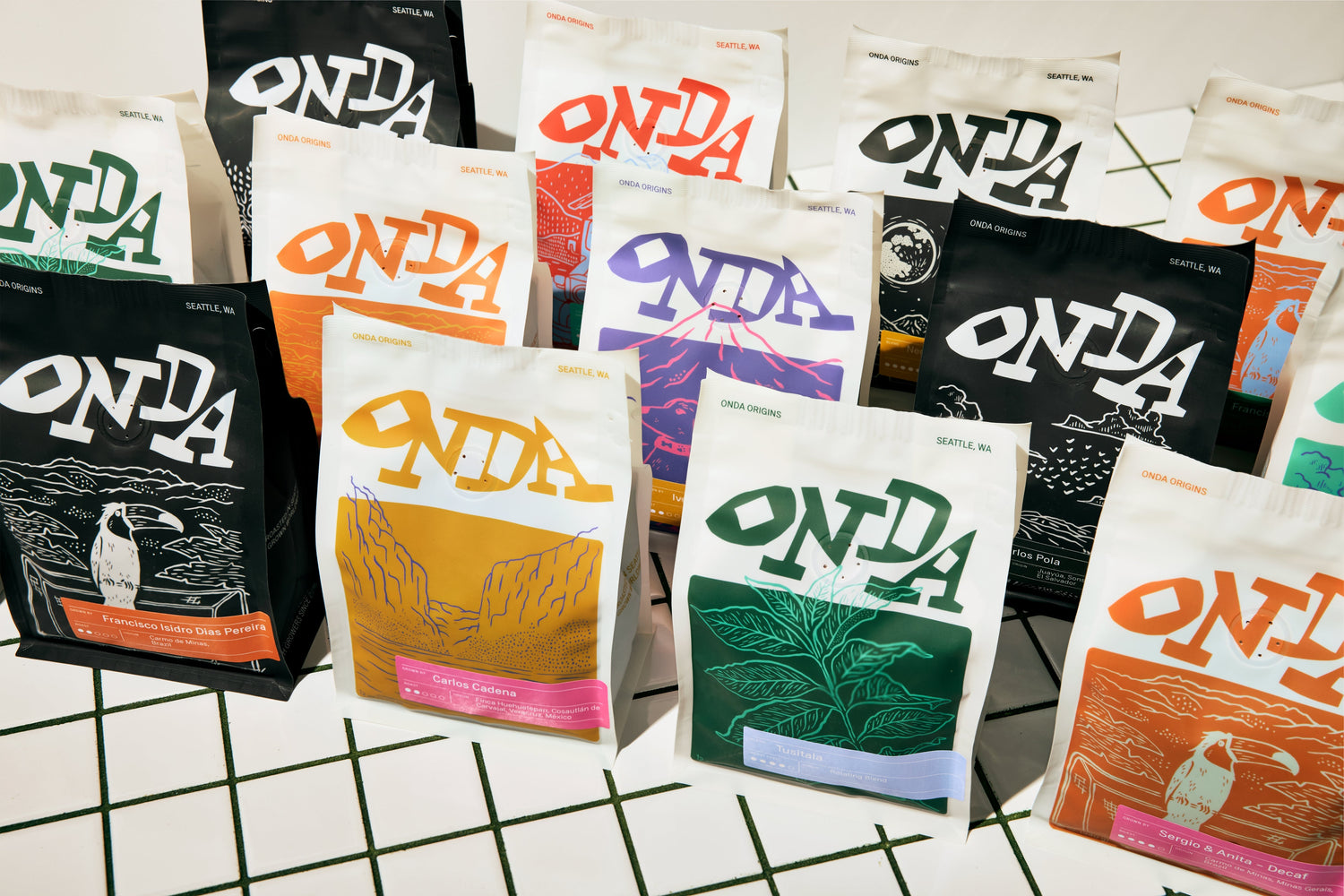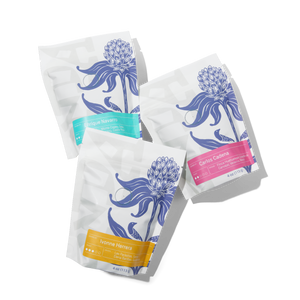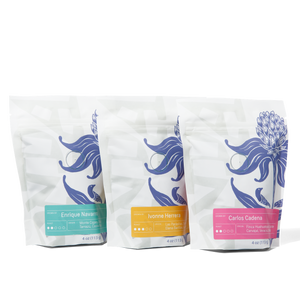Behind the Sticker: Costa Rican Coffee Farmer Enrique Navarro
Enrique Navarro Jr., a longtime friend of Onda and the farmer behind our Costa Rican single-origins, is a success story of specialty coffee. He fell in love with coffee early on through his parents' farm in Costa Rica, and through his tireless work, he helped his family improve their crop's quality and earn recognition on a global stage for producing the best coffee in Costa Rica.
For Enrique to beat the odds in an industry where the majority of coffee growers have a hard time earning enough money to even cover costs, he has relied on people who are often left out of the story altogether: coffee pickers.
While the Navarro family works all year to plant and cultivate their coffee plants, it's during harvest months that they hire seasonal workers to help hand pick the coffee cherries as they ripen. This is one of the most critical and labor-intensive steps in the coffee production process—how the coffee is picked can determine an award-winning coffee from an average cup.

Like many other Costa Rican coffee farms, Enrique’s farm relies on seasonal migrant workers. While these workers have historically been local to Costa Rica, many young Costa Ricans now leave rural farm zones for urban areas with more opportunity. This means that the majority of coffee pickers—largely the indigenous Ngäbe-Buglé people—now travel from Panama, making a demanding journey that leaves the population in a state of mixed documentation, limited resources, and host to human rights abuses. Migrant farm workers are often housed in warehouse-type buildings—40-60 people to each structure—with usually no sanitation, plumbing, mattresses, or privacy.
With it’s volcanic soil and wet climate, Costa Rica has some of the best conditions for coffee, but coffee farms are disappearing since typical market prices paid are not enough for coffee farmers to live on, let alone pay their farm workers a living wage.
But Enrique does things a little differently. He starts by paying his workers 150% above Costa Rica’s wage requirements, and continues to find new ways to support them. “We are really working to provide better conditions for our farmers, our coffee pickers,“ says Enrique. “We have been building new houses for them and providing them with beds. Right now, the families are four or five families per house. In the future, we want to build a house for each family.” The Navarros are also planting staple foods on their farm so their workers don't have to spend extra time and money to take a bus into town and buy them—and the farm is working on a purified drinking water solution.

“One of the dreams I have is to someday help our Panamanian workers build houses in their communities,” Enrique continues. ”When they are here they feel comfortable and they see us building houses for them in Costa Rica, and [they] are always very excited, asking how much it costs to build. You can see they’re interested in improving their conditions back home.”
Onda’s revenue share model means an additional $1 per pound of coffee sold, and a second flow of income to farmers beyond the one-time purchase price (which is already significantly higher than market). This second payment puts more money in growers’ pockets, and for Enrique, it has had a measurable impact on the workers he considers absolutely integral to his success.

(Enrique's text reads: "New house for coffee pickers thanks to the funds from Onda!")




